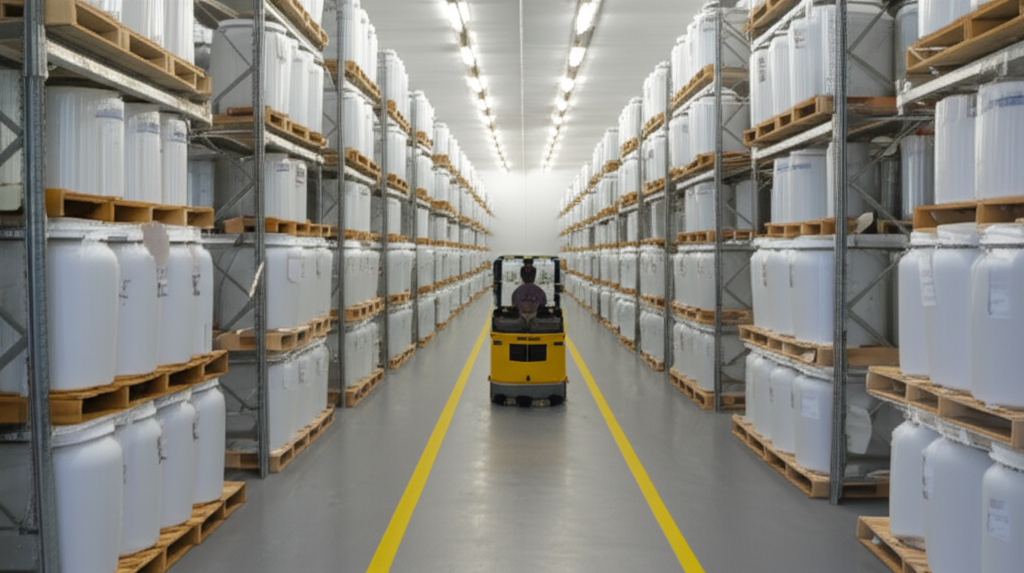Poly Aluminium Chloride (PAC) is a highly effective inorganic polymer coagulant widely utilized across various water treatment applications. Known for its superior performance in flocculation, PAC powder plays a critical role in purifying water sources and managing wastewater.

This versatile chemical auxiliary agent functions by neutralizing the negative charge of suspended and colloidal particles in water. This neutralization process destabilizes the particles, allowing them to aggregate into larger flocs. These flocs are then easily removed through sedimentation or filtration, resulting in clarified water.
PAC powder typically exhibits a brown appearance, indicating specific manufacturing processes or the presence of certain auxiliary components that enhance its performance in particular applications. A common purity specification is 30% Al2O3 content, which reflects its active ingredient strength. Key identifying parameters include its CAS number 1327-41-9, the empirical formula Al2Cl(OH)5, and the EINECS number 215-477-2. The pH of a 1% solution typically falls within the range of 3.5 to 5.5, highlighting its acidic nature which is crucial for its coagulation mechanism.
The effectiveness of PAC stems from several advantages over traditional coagulants like aluminum sulfate or ferric chloride. It generally requires lower dosages to achieve the same or better results, leading to reduced chemical consumption and lower operational costs. Furthermore, PAC is effective over a wider pH range, making it suitable for treating various water types without extensive pH adjustment. Its use also typically results in the production of denser, more easily settled sludge, simplifying sludge dewatering and disposal processes. These benefits contribute to more efficient and economical water treatment operations.
Applications for Poly Aluminium Chloride powder are diverse and critical. Its primary use is in the purification of drinking water, where it effectively removes turbidity, suspended solids, organic matter, and certain heavy metals, ensuring the safety and clarity of potable water supplies. In industrial settings, PAC is extensively used in wastewater treatment to remove pollutants and improve effluent quality before discharge or reuse. Industries such as paper manufacturing utilize PAC for sizing and retention aid, improving paper quality and reducing water usage. In the textile industry, it aids in dye removal from wastewater. PAC is also applied in the oil and gas industry, particularly in oil drilling operations, including salt water wells and offshore drilling, where it acts as a clarifier and rheology modifier. Other uses include precision casting and the manufacturing of certain daily chemicals.
Quality consistency is paramount for reliable water treatment performance. Standard testing parameters for PAC powder include Al2O3 content (often specified as 26% minimum), basicity (typically between 70-90%), pH of a 1% solution, and the percentage of water-insoluble matter (usually maximum 2.0%). These specifications ensure the product meets the required performance standards for coagulation and flocculation. Proper storage in a cool, dry place is essential to maintain its efficacy and shelf life, which is typically around 2 years under optimal conditions.
Selecting the right coagulant is a crucial decision for water treatment professionals, impacting both efficiency and environmental compliance. The choice often depends on the specific water characteristics, treatment goals, and economic considerations. Poly Aluminium Chloride, with its robust performance and versatility, remains a preferred choice for many applications globally.
For those seeking a reliable manufacturer and supplier of high-quality Poly Aluminium Chloride powder, understanding product specifications and sources is key. Information regarding the price of PAC powder can typically be obtained by contacting qualified suppliers directly to request a quotation based on required quantity and specifications. When looking to buy or purchase this essential water treatment chemical, ensure the supplier provides detailed product data sheets and certificates of analysis to guarantee quality and consistency. The process of procurement often involves determining the optimal quantity needed and negotiating terms for timely delivery.
Manufacturing Facilities






Professional Export Experience
to Global Customers

1. 20 years of R&D, manufacturing and sales experience, serving customers in 60 countries and regions around the world;
2. Own R&D laboratory, pilot platform and large-scale production workshop, which can meet the audit requirements of global customers;
3. We can satisfy customers' perfect transition from small scale lab requirements (gram level) to commercialization requirements (hundred tons level).
A: We don't have Minimum Order Quantity, exact quantity should be provided before quotation for us to calculate the exact cost.
A: We don't provide free samples due to lots of request and expensive international courier's cost, we can deduct the sample charge after commercial order placed.
A: Our payment terms: Small or sample order: T/T IN ADVANCE. Commercial order: First order should be by T/T IN ADVANCE or L/C at sight, and following orders T/T 30~90days is acceptable subject to approval of credit application.